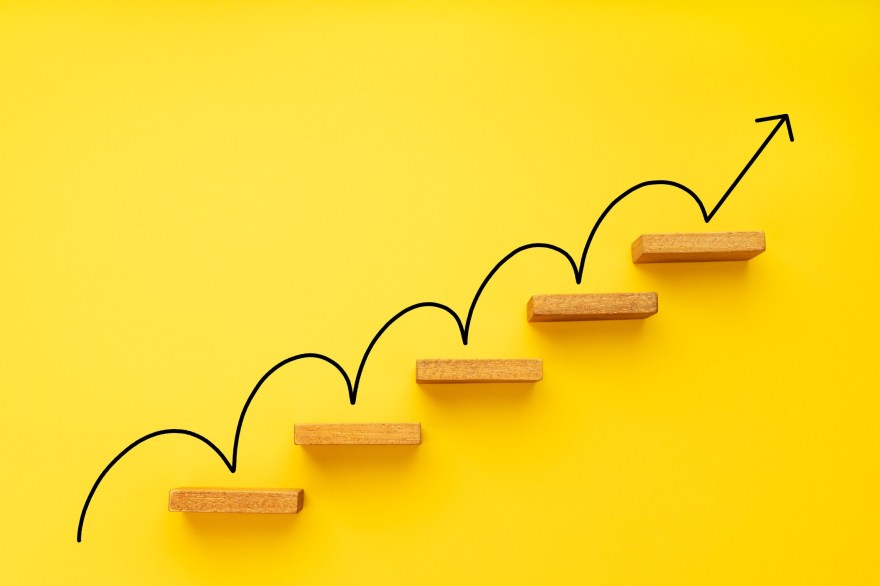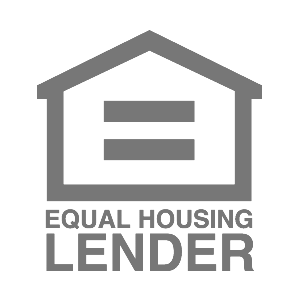
American households are feeling the pinch of higher interest rates and increased costs. While inflation is starting to cool, the Federal Reserve had to make some dramatic interest rate hikes. The decision to raise interest rates might be pushing against inflation. Still, higher rates mean it’s more expensive to borrow.
The idea of higher interest rates might seem irrelevant to your wallet. But the reality is that climbing interest rates can make it more challenging to afford major purchases.
Let’s explore how rising interest rates might affect you. Plus, learn practical strategies to protect your finances from this threat.
In This Article
5 ways to take charge of your wallet when interest rates are high
Higher interest rates can be a drag on your finances. But the good news is that you can limit the negative impacts by taking charge of your wallet.
Here’s how to protect your finances with interest rates going up.
Pay off high-interest debt
If you have credit card debt, consider making a plan to pay off your debt. Otherwise, the higher interest rates will make paying off your previous purchases more expensive.
Look at your budget for areas to make temporary cuts to reduce your credit card balance. If you have nothing to slash, consider picking up a side hustle to start taking control of your credit card debt.
Consolidate credit card debt
Paying off high interest credit card debt isn’t a walk in the park. If you don’t have the option to pay off your debt right now, consider consolidating your high interest debt into a debt consolidation loan with a lower interest rate.
While a personal loan is one option to consolidate your debt, tapping into your home equity is another possibility to consider.
Build your savings account
A solid savings account is helpful during any economic climate. But a robust emergency fund is especially important during tumultuous economic times. As the Fed works to tame inflation, we might be in for a bumpy ride.
As you navigate your finances, look for ways to save money. In this economic climate, where you stash those savings matters. While your funds might be sitting in a traditional savings account, now can be the right time to look at high-yield savings account options.
Although the average rate on savings accounts is 0.46%, you can find accounts that earn 4%. In this case, higher interest rates could positively impact your financial situation.
Check on your budget
Without a budget, it’s easy to make money mistakes. That’s especially true when high inflation and climbing interest rates pressure household finances. Checking in on your budget regularly can help you stay on track toward your money goals.
If you don’t already have one, it’s a great time to create a budget. Various apps and tools make budgeting easier than ever. As you build your budget, consider your necessary expenses and savings goals before fun splurges.
Build your investment portfolio
Investing is a critical part of a bright financial future. Typically, the stock market has a negative reaction to higher interest rates. But falling prices might be the right time to start building your portfolio.
Why the Fed keeps raising interest rates
The goal is to tame inflation, reduce the amount of money in circulation and decrease aggregate demand.
The Federal Reserve (Fed) began raising interest rates in early 2022. The first rate hike kicked off in March 2022. The latest rate hike, on July 27th, 2023, saw the target federal funds rate range pushed to 5.50%.
So far, inflation has fallen from its June 2022 peak of 9.1% to 3.4%, according to the latest Consumer Price Index (CPI) numbers. That’s still slightly higher than the Fed’s target inflation rate of 2%.
How do high interest rates affect credit cards and other consumer debt
For most households, higher interest rates make it more difficult to take out loans. When higher rates are tied to mortgages and auto loans, some consumers can’t afford to move forward with the purchase.
But what happens to consumers already holding onto credit card debt? Credit cards come with variable interest rates, which rise as the Fed raises interest rates.
As of 2024, Fed rate hikes have already pushed credit card APRs higher. In the fourth quarter of 2023, the average credit card interest rate was 22.75%, while in 2021 the average interest rate for credit cards was 16.45%. Higher interest rates on your credit card balance mean higher borrowing costs.
A higher interest can come with real impacts on your wallet. For example, let’s say someone takes out a $20,000 60-month auto loan with a 4.5% APR. That would lead to a monthly payment of $372.86 and total interest costs of $2,371.62. But if the APR were 6.5%, the monthly payments would jump to $391.32 and total interest costs of $3,479.38.
The higher costs can have a big impact on anyone’s budget.
Monitor interest rates as you navigate your finances
At an individual level, there’s nothing any of us can do to raise or lower interest rates. Instead, that’s a decision left up to the Fed. But with inflation still raging well above the 2% mark, rate hikes will likely continue.
What we can do is monitor the changing interest rate environment while navigating our finances. By continuing to budget and save, while avoiding high-interest debt, you’ll be better prepared for any economic climate.
Written by Sarah Sharkey
Sarah Sharkey is a personal finance writer who enjoys diving into the details to help readers make savvy financial decisions. She lives in Florida with her husband and dogs. When she’s not writing, she’s outside exploring the coast. You can connect with her on her blog Adventurous Adulting.
All personal loans made by WebBank
Eligibility for a home equity loan or HELOC up to the maximum amount shown depends on the information provided in the home equity application. Depending on the lender, loans above $250,000 may require an in-home appraisal and title insurance. Depending on the lender, HELOC borrowers must take an initial draw of the greater of $50,000 or 50% of the total line amount at closing, except in Texas, where the minimum initial draw at closing is $60,000; subsequent HELOC draws are prohibited during the first 90 days following closing; after the first 90 days following closing, subsequent HELOC draws must be $1,000, or more, except in Texas, where the minimum subsequent draw amount is $4,000.
The amount of time it takes to get funds varies. It is measured from the time the lender receives all documents requested from the applicant and depends on the time it takes to verify information provided in the application. The time period calculation to get funds is based on the first 4 months of 2023 loan fundings, assumes the funds are wired, excludes weekends, and excludes the government-mandated disclosure waiting period.
For Texas home equity products through Prosper, funds cannot be used to pay (in part or in full) non-homestead debt at account opening.
Depending on the lender, qualified home equity applicants may borrow up to 80% – 95% of their primary home’s value and up to 80% – 90% of the value of a second home. In Texas, qualified applicants may borrow up to 80% of their home’s value. HELoan applicants may borrow up to 85% of the value of an investment property (not available for HELOCs).
Home equity products through Prosper may not be available in all states.
All home equity products are underwritten and issued by Prosper’s Lending Partners. Please see your agreement for details.
Prosper Marketplace, Inc. NMLS# 111473
Licensing & Disclosures | NMLS Consumer Access
